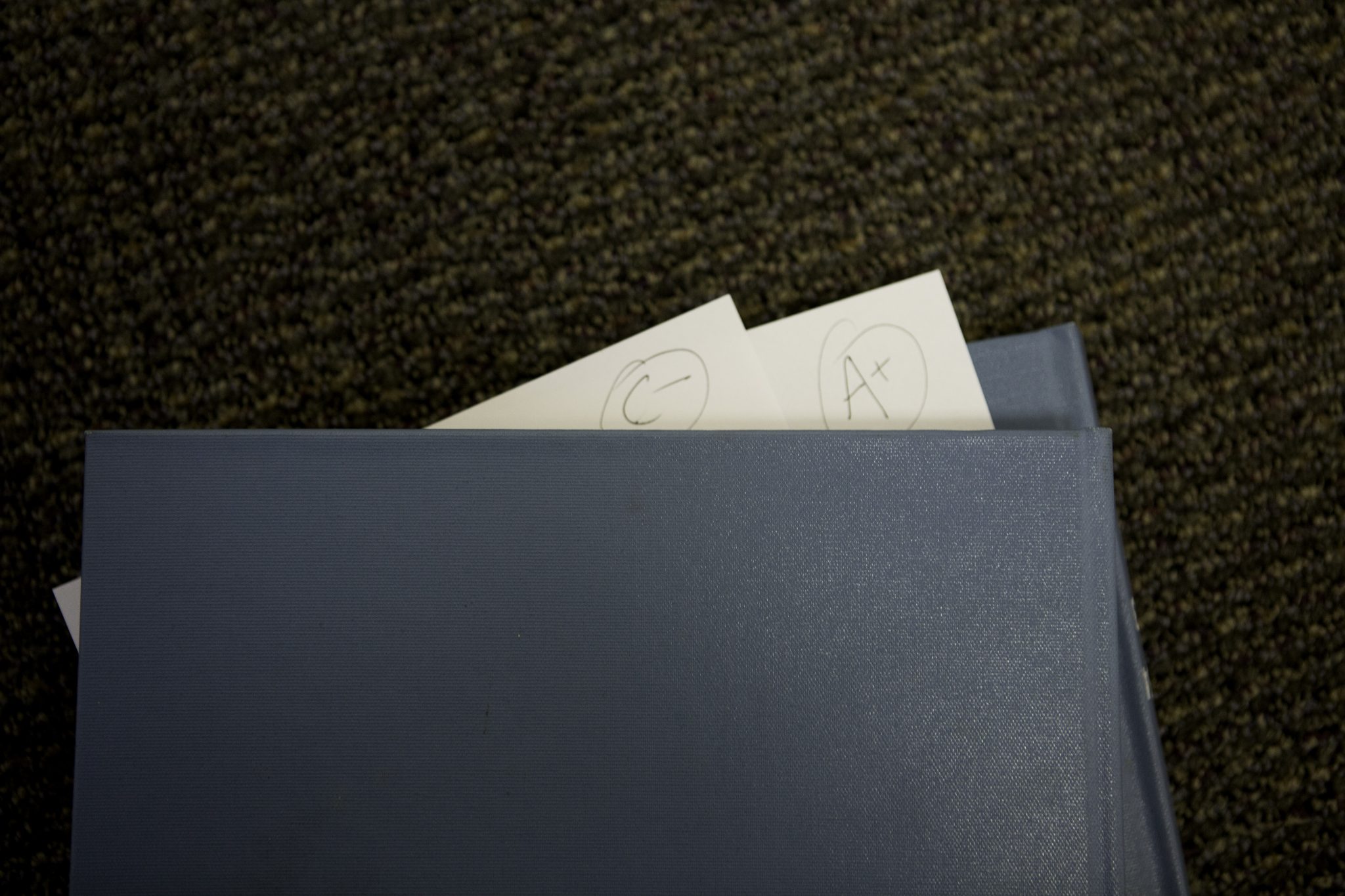Comparing grades and measuring intelligence


Back in grade nine, I had a teacher who didn’t ever take any real notice to her students’ personal lives. To me, that made her interest, when it did happen, even more memorable.
After a particularly hard test, one of my friends continued to ask what grade I received, even after several times of me trying to politely avoid the question.
“I actually don’t share my grades,” I remember saying. “What I got is what I got and I want to be proud of that without comparing it to everyone else.”
My teacher overheard and commented that she wished more students thought like that. I agree.
In a competitive world, it’s hard not to be competitive about everything. If you and your friend are going for the exact same job, it’s comforting to think that you have a one-up on them, even if that’s as simple as the quick relief of doing better on a test.
With all of our final grades from the winter term rolling in seeing the posts about GPAs can be disheartening, and chasing that feeling of intelligence and adequacy by posting your own accomplishments always seems like an option.
But it’s a double-edged sword. If you got a better grade than your friends, you run the risk of making them feel inadequate in themselves, the same way you feel when you hear about their higher grades.
That’s not a very friendly thing to do. At the same time, if you have a grade that you’re not proud of, laughing it off may seem like a good idea until your friend gets the 12 point GPA you studied hard to receive and fell short of.
There are countless memes about feeling shitty about a low grade and having someone else brag about their high grade. Don’t be that guy. Literally no one likes to talk to that guy.
You never know how your friend is feeling about their intelligence based on a letter grade, and the easiest way to avoid that situation is to avoid the discussion all together. Besides, a great grade for one person may be devastating to another, depending on goals and expectations.
In a competitive world, it’s hard not to be competitive about everything.
It’s hard to see who is doing “better” in the real world, where the perceptions are subjective and often aren’t known by the generalpublic. There is a certain humility that comes from being in the dark as to who is the smartest or most successful in the room.
When we place a quantifiable grade from one to 12 on our intelligence, that number can define who we are, and it really shouldn’t. At the end of the day, “I did well” should be enough.
Save your GPA for where you put your other skills and where it really matters — on your resume.
By all means, work hard and be proud of what you have achieved, but there is no point in making a competition out of every aspect of your university career, especially when you don’t need to.
Save that competitive spirit and the big guns, namely your 12 point — GPA two semesters in a row, for the interview for your dream job.
Humility and thoughtfulness are things I truly believe will be rewarded in the long run.
If you’re really confident in your intelligence and you feel smart, your validation should come from people recognizing that through how you express yourself in your interactions, not from shoving grades in their faces in a false race to a non-existent finish line.
In the words of the great modern philosopher Cady Heron: “Calling someone stupid won’t make you any smarter.”


